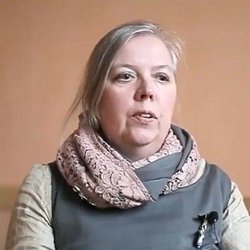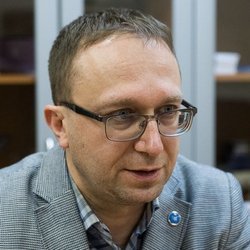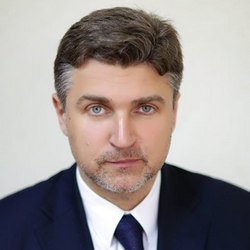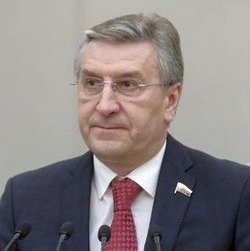“You can't take all infectiologists and throw them to fight one disease”
COVID-19 lessons for the healthcare system
The pandemic of the new coronavirus continues its victorious march across the planet. Almost 16 million people have been diagnosed with COVID-19 worldwide, and more than 600,000 of them have died. Realnoe Vremya, with the help of experts, decided to find out what lessons the healthcare system should learn from what is happening, so as not to repeat the mistakes in the case of a “second wave” or a new virus that the world has not yet heard of.
In case of “second wave”
As of Friday evening, July 24, COVID-19 has already been diagnosed in 15,7 million people, 638,000 of which died (9,6 million recovered). The most infected are in the United States, Brazil, India, Russia and South Africa.
Meanwhile, “the Covid-19 agenda” is shifting more and more towards discussing the imminent creation of a vaccine from the virus (“vaccine race”), the feasibility of its universal use, as well as the second wave of the pandemic, which is also becoming the subject of speculation because of already annoying quarantines, restrictions, and border closures during the first wave. For example, political expert Gleb Kuznetsov, commenting on the Bloomberg news about the “secret vaccine for the Russian elite”, notes that it is nothing more than an inexpensive way to promote the idea of universal vaccination against coronavirus, which is not obvious to experts. A certain “Russian elite”, in his opinion, is best suited for this role, since the media has created a unique reputation for it: “People who are devoid of any moral qualities and restrictions but have infinite access to money and absolute rationality, moving towards the goal in the shortest and most effective way.”
The World Health Organization, meanwhile, believes that the coronavirus vaccine will not be mass-used until at least 2021. “If you get a grip on reality, people will not be vaccinated until the first half of next year," Michael Ryan, the executive director of the WHO Health Emergencies Programme, said this week. At the same time, he noted that researchers have already made serious progress in developing a vaccine against COVID-19.
“The number of infectious beds before the pandemic had been reduced by 2,5 times on average in the country”
Irina Kravchenko, the chief freelance specialist in infectious diseases of the ministry of healthcare of Russia in the Volga Federal District, Doctor of Medical Sciences, outlined the main problems highlighted by the pandemic in an interview with the correspondent of Realnoe Vremya. “The infection service has been significantly reduced throughout Russia, including in Tatarstan. The number of infectious beds in the country had been reduced by 2,5 times on average. The reason is that in recent years there has not been such a high incidence of infectious diseases. As a result, a false impression was created about the lack of demand for infectious services, and material resources and personnel were reduced. This decision led to that when the COVID-19 pandemic developed, the reserves of the infectious service were extremely insufficient," the expert notes. “The pandemic has clearly shown that the infection service is strategically important, it must always be on top and ready for any epidemic rises in the incidence of diseases.”
According to Kravchenko, with reaching the understanding of this fact, infectious hospitals began to be opened in many regions, new personnel are being attracted to the infectious service. So now the strategic reserve of the infectious diseases service is being formed. In particular, this was the basis for the rapid construction of the new building of the Republican Clinical Infectious Diseases Hospital in Tatarstan, which is expected to open in August.

“I myself, for example, had to learn the treatment regimen for borreliosis”
Children's neurologist Elizaveta Melanchenko draws attention to three main problems highlighted during the pandemic — the lack of emergency vaccination, the lack of infectious disease specialists and the work of psychiatric care.
According to the interlocutor of Realnoe Vremya, since a large number of specialists have been involved as infectiologists, many problems, not “covid” ones, but infectious, were not solved in any way. “These infectious problems eventually had to be solved by those who are not infectiologists at all — cardiologists, neurologists, orthopedists and representatives of other specialties. Because all infectious diseases were put to fight against COVID-19," she said. “I, for example, had to learn the treatment regimen for borreliosis. . Since I deal with the nervous system, and borreliosis gives complications to the nervous system, I had to treat borreliosis the most. But there was absolutely no one to consult. Only with my own records, the Internet, and textbooks.
As a result, Melanchenko concludes that infectious disease specialists should do their own business — infectious deseases. “And when we deal with an epidemic, there must be at least dispatchers who deal with other problems. You can't take all infectiologists and throw them to fight one disease. Someone should also deal with other infectious diseases, which are not becoming less," she is convinced.

Another problem that the expert draws attention to is the system of psychiatric care. “People with mental illnesses — schizophrenia, manic-depressive disorders, borderline states, experienced isolation with great difficulty. I know a lot of cases among adapted people when they were maladapted, and someone even committed suicide, someone was stopped by relatives who lived with them. I also know older people who died out in isolation very quickly — there is a sharp change in social activity, and the fear of death," she said.
Finally, another problem that has come to light — it was almost impossible to hospitalise a patient who was not diagnosed with COVID-19, the expert complains. “Among my patients, friends, acquaintances, many more people died from failure to help than from COVID-19. As much as three people died from a heart attack because they were not taken to the hospital in time. In one case, an ambulance arrived and said that there was nowhere to take them because all the hospitals were closed because of COVID-19. In another case, a person was taken for 4 hours to different hospitals, as a result, he was hospitalised but he died a few hours later ," says Melanchenko.
From all this, the interviewee calls for the conclusion: in no case should one be engaged in a single nosology. “There should be hospitals that treat other diseases that require urgent intervention. There should be separate infectious diseases hospitals that were suspended during the inter-epidemic period but that could be reactivated during the epidemic period. All other specialised centers must perform their normal work. Because there are no fewer patients," she concludes.
“The cost of developing a drug, if you follow all the requirements, reaches up to a billion dollars”
Director of the scientific and clinical centre for precision and regenerative medicine of KFU, virologist Albert Rizvanov, who is working on the development of a vaccine against COVID-19 in the Kazan Federal University, is convinced that the pandemic of the new coronavirus should “loosen the nuts” in the process of creating vaccines during pandemics.
According to the interlocutor of Realnoe Vremya, the traditional scheme of developing vaccines takes several years. “In modern realities, when new infectious threats arise, such rates simply do not keep up with the speed of the spread of pandemics. Here, the states have to think about how to balance the safety and effectiveness of vaccines for the population and the speed and cost of their development for manufacturers," he believes. “Regulatory nuts in the field of drug development have been tightened more and more in recent decades. The process of development, testing, and registration has become more and more complex and extended. Currently, the development of a single drug and conducting all stages of clinical trials, if you follow all the requirements, costs hundreds of millions of dollars, and sometimes reaches up to a billion.”
Rizvanov is convinced that the full cycle of creating vaccines during a pandemic can be reduced from a few years to six months. “A vaccine can be developed in one month. Animal testing may take another 2-3 months. And the first phase — 2-3 months. After that, in principle, we can talk about the safety of the vaccine," the expert gives an assessment. “But at the same time, administrative support for development should work like clockwork.”

According to Rizvanov, the COVID-19 pandemic also showed that modern technologies of genome decoding and genetic engineering allow creating a new generation of vaccines much faster than classic vaccines based on a weakened or killed virus, and even compared to recombinant vaccines, where individual viral proteins are used (the time is reduced to several weeks).
“Closing people in quarantine, officials plunged them into frustration”
Aleksey Danilov, the director of the Institute of Interdisciplinary Medicine, head of the department of nervous diseases of the First Moscow State Medical University, neurologist, believes that the COVID-19 pandemic has shown the fragility of the biotechnological health system, which relies only on drugs, injections and vaccinations to preserve and promote health.
“It turned out that 20 per cent of the population, that is, every fifth person, is vulnerable to the new coronavirus. These are patients with cardiovascular diseases, diabetes, obesity, and neurological disorders. Five percent of them need to be hospitalised, so the health system could not think of anything better to lengthen this wave by smoothing the incidence curve. But the health system can't cope with this virus but only prolongs the agony. We do not have enough doctors, medical beds for such a number of patients, given that every fifth person is vulnerable with COVID-19," the interlocutor of Realnoe Vremya is convinced.
Due to that it is impossible to put every patient in the hospital in conditions of mass morbidity, it is necessary to make our homes, schools, universities, and public buildings healthy," Aleksey Danilov believes. To do this, you need to adopt modern technologies that help purify the air, lighting systems that reduce stress, and so on. “The idea of creating a healthy urban environment is more promising in terms of the following threats that nature can bring to us," he said.

“Closing people in quarantine, officials plunged them into frustration. Many people have lost their jobs or are worried about their future or uncertainty. As you know, this fear, anxiety that turns into panic, make a more significant contribution to neuropsychiatric disorders than the epidemic itself. After Chernobyl, people no longer suffered from radiation sickness but from the fear that they were infected with radiation. And then they went after the health care system for a long time to get help. The same neuropsychiatric consequences are expected in the health sector after the current pandemic," Danilov predicts.
Another serious mistake, the interlocutor is convinced, was the reliance on ventilators, which were positioned as a salvation from COVID-19. “However, it turned out that 84 per cent of patients die on these devices, and they should only be used in the most critical cases," he said. “The attempt to treat COVID-19 as a viral or pulmonological problem led to that the health system was not ready. COVID-19 is an interdisciplinary problem, the new coronavirus leads to neuro-immuno-infectious disorders that affect the brain, the peripheral nervous system, the cardiovascular system, and the muscular system. And one shouldn't look only from the position of your specialty — the general integrative view is important.”
“We survived the pandemic much easier than many developed and rich countries”
State Duma Deputy from Tatarstan, Doctor of Medical Sciences Ayrat Farrakhov offered to reflect on what lessons COVID-19 has taught the state as a whole. “We should say at once that doctors are heroes. They worked perfectly and continue to work. They demonstrate heroism and selflessness," he stressed.

Farrakhov reminds that healthcare is a very financial-intensive industry. “Every year, there is a huge number of innovative medicines, equipment, new breakthrough areas that require additional financial resources. Therefore, it is very important to allocate additional funds in a timely manner, primarily at the federal level, so that these technologies help sick people and become a real tool for effective work of doctors. The industry must conform to the technological structure. In other words, the financial security of the industry should be higher," he notes.
According to the deputy, the medical industry today is clearly lagging behind in digitalisation. “Its level should be significantly higher. This will save a lot of money and eliminate people going to clinics for sometimes useless paper. Digitalisation will free up a huge amount of time for doctors," Farrakhov concludes.
The expert also believes that if these key points had been corrected before the pandemic, the effectiveness of the health system would have been higher.